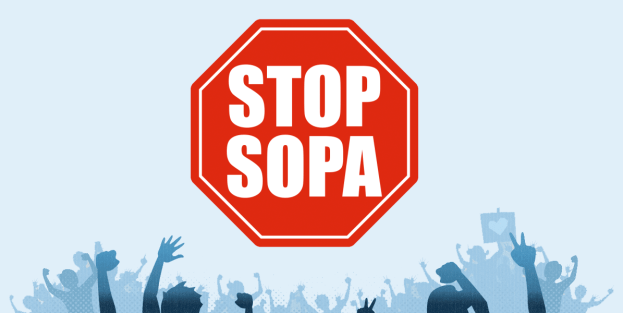
Opposition to the Stop Online Piracy Act—SOPA—is spreading from the world of the Internet to the worlds of big business and politics, and a quiet update to the list of companies and organizations willing to put their names down as supporters of SOPA reveals the proposed legislation is losing supporters. Along with domain registrar GoDaddy—which kicked off a firestorm of backlash for its SOPA support before doing an about-face—game makers Nintendo, Electronic Arts, and Sony Computer Entertainment have also had their names removed from the House Judiciary Committee’s list of SOPA supporters (PDF).
The Stop Online Piracy Act—and its companion piece, the Protect IP Act—are intended to provide mechanism for publishers, trademark, and copyright holders to get sites taken offline for offering unauthorized or counterfeit goods, whether physical items or digital downloads. Among other things, the bill would make unauthorized streaming of copyrighted content a felony. What’s more, the way SOPA is worded, content owners would in theory have the right to demand Web site be taken down merely for linking to content that potentially infringes on a copyright—including having the allegedly-infringing site’s domain blacklisted and its advertising and transaction revenue suspended.
SOPA’s authors claim the proposed legislation is intended to protect copyright and intellectual property from piracy, especially by overseas Web sites. Opponents claim SOPA amounts to wonton Internet censorship and would drastically infringe on rights to free speech.
The defection of game-makers like Sony Computer Entertainment, EA, and Nintendo may represent a genuine reconsideration of the firms’ original support for the bill, or may simply be a public relations move in the wake of the shellacking given to domain registrar GoDaddy for its support of the measure. And it’s worth noting that the Entertainment Software Association (ESA) is still listed as an official supporter of the bill—and Sony, EA, and Nintendo are all major members of the ESA. Other Sony divisions are still listed as supporters as well, including Sony Music. Other high-profile SOPA supporters include Viacom, Visa, News Corp., publishers like Random House and Penguin, the NFL, Disney, music royalty organizations BMI and ASCAP, Marvell, Time Warner, and Comcast.


